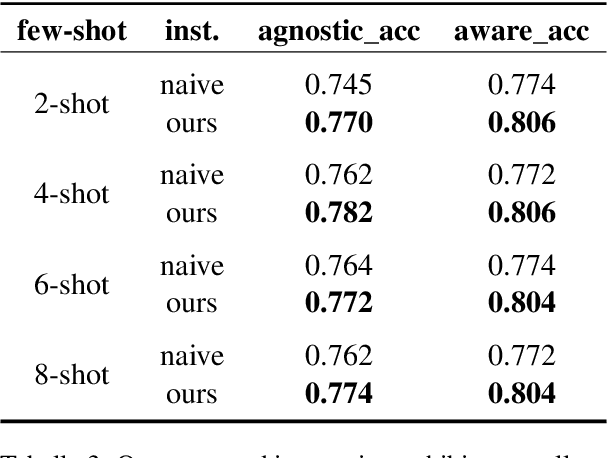Songtan Fang
OPDAI at SemEval-2024 Task 6: Small LLMs can Accelerate Hallucination Detection with Weakly Supervised Data
Feb 20, 2024

Abstract:This paper mainly describes a unified system for hallucination detection of LLMs, which wins the second prize in the model-agnostic track of the SemEval-2024 Task 6, and also achieves considerable results in the model-aware track. This task aims to detect hallucination with LLMs for three different text-generation tasks without labeled training data. We utilize prompt engineering and few-shot learning to verify the performance of different LLMs on the validation data. Then we select the LLMs with better performance to generate high-quality weakly supervised training data, which not only satisfies the consistency of different LLMs, but also satisfies the consistency of the optimal LLM with different sampling parameters. Furthermore, we finetune different LLMs by using the constructed training data, and finding that a relatively small LLM can achieve a competitive level of performance in hallucination detection, when compared to the large LLMs and the prompt-based approaches using GPT-4.
 Add to Chrome
Add to Chrome Add to Firefox
Add to Firefox Add to Edge
Add to Edge